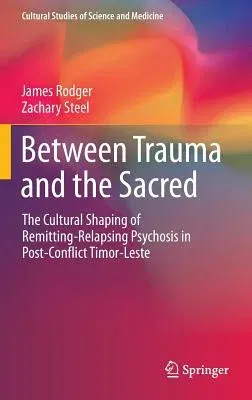The relatively frequent occurrence of rapid onset and very brief, but
often florid, psychotic states, with periodic recurrence, alongside
relatively low rates of PTSD and chronic psychosis, were unexpected
findings from the 2004 East Timor Mental Health Study, conducted in the
context of the country's recently won independence and in the wake of
the atrocities endured in the protracted fight for sovereignty. Further
unanticipated was the frequent association of recurrence with the time
of the new moon (fulan lotuk) and other times or places of sacred
(lulik) or associated cultural significance. The perceived violation
of culturally sacrosanct lulik obligations often also appeared to
foreshadow the initial onset of such patterns of distress. Significant
episodes of trauma and loss appeared a hidden feature of affected
individuals histories, which we argue have become symbolically entwined
with local cultural understandings of ritual obligation, sacredness, and
taboo.
This volume develops a dynamic but contextualized multi-level
formulation of psychosis and psychotic-symptoms, able to incorporate a
range of factors from the biological, through the sociocultural, to the
political. The work is truly interdisciplinary drawing on both the
quantitative and qualitative findings of our own study but further
supported through local ethnography and broader anthropological enquiry
into the outcomes of psychosis in non-Western settings; psychoanalysis
and psychoanalytic anthropology; evidence and theory exploring links
between trauma, dissociation and psychosis; and novel
culturally-adaptable psychosocial focused interventions for psychosis.
We situate both evidence and theorising in wider epistemological and
political context, including in relation to the movement for Global
Mental Health. Culturally patterned presentations of brief
remitting-relapsing psychosis are ultimately conceived as the trade-off
between competing fragmentary and synthetic forces: the former in part
secondary to the lasting and deleterious effects of overwhelming loss,
trauma and adversity; the latter emboldened by cultural meaning and
social response in the context of broad ecological pressures demanding
survival and resilience.

